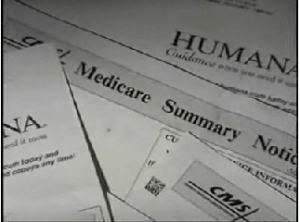 It all started at the IRE conference this summer, when a 60 Minutes producer approached WFOR-TV’s Stephen Stock. Would he be interested in working together on an investigation?
It all started at the IRE conference this summer, when a 60 Minutes producer approached WFOR-TV’s Stephen Stock. Would he be interested in working together on an investigation?
That brief conversation led both CBS News and its Miami affiliate to produce separate but parallel stories a few weeks ago on Medicare fraud. “We discussed strategy. We shared ideas, information, insights and sources,” says Stock. “We made sure we each did different angles so that we ‘wouldn’t step on the toes’ of the other.”
The basic facts of the two stories are the same: Medicare fraud costs the government $60 billion a year and much of it happens in South Florida. But what’s striking when you watch the pieces back to back is how different they look. WFOR used undercover video that it shared with CBS but 60 Minutes decided not to use it. The local version included a Google map and more video from a warehouse where federal investigators kept their files.
“When I first went in to talk to the FBI and HHS investigators (with no camera) I was FLOORED!!! FLOORED that the entire large conference room was packed with boxes of evidence,” Stock wrote in an email. “I said ‘Oh my gosh! This is huge.’ I kept that in the back of my mind and asked (months) later to shoot the boxes…to ‘demonstrate to our viewers’ how bad this problem is.”
Stock had reported on Medicare fraud before and he says some of his best sources for the latest story called him “out of the blue.” His advice to other journalists? “When people call who say things that sound outrageous…at least meet them and listen—it might be true!”
One more tip: read letters to the editor in the local paper. “There was a guy who wrote in complaining that his Medicare number had been billed for things he didn’t need, use or receive. I got his name from his letter to the editor, called him and did the interview. Bingo. It was just the issue that we’d been working on for weeks.”
Stock’s 8 minute piece aired as part of a half-hour special on WFOR. Which story is better? Hard to say. Both are worth watching.
Here’s the CBS 60 Minutes story, reported by Steve Kroft:









1 Comment
Great pieces by both teams. There were a few interesting differences that are immediately noticeable based on the premise.
One was the set up. WFOR used hidden cameras in what seems like a classic “investigative” style. Very in your face but also useful because it did give the suspects a face. I thought it was a little bit overused and some of the content wasn’t the best quality but they did introduce one of their later subjects “HIV-Positive man” as a character which was good storytelling.
60 Minutes took the different tack– and one that seems more like a local affiliate move– they did the “ride-along”. It worked on two levels. It provided plenty of cover video and content for the story and for a non-local it established the empty strip mall landscape. For a local, that might be an obvious scenario, but for a national audience I thought it established the scene for the story well. It also fit better with their law enforcement angle as opposed to the victim angle taken by WFOR.
Also — the use of silhouettes for interviews vs. the makeup/facial hair for 60 Minutes interview subject. At first I thought it seemed silly to just use the makeup. Then I put some thought into it and it made more sense. First, he was already incarcerated so the threat to his identity is probably less of a factor than for the two people interviewed by WFOR who are still presumably on the street and at greater risk. Also..the exposure from a local news outlet would provide a greater chance of being recognized for the WFOR subjects than the risk of being seen on 60 Minutes. I imagine that risk would be compounded by continuing coverage across platforms where that interview might continue to be available on a local website and in a special newscast like the one WFOR ran.
Another difference… Access. While both had good interviews with FBI field agents and DSHS agents 60 Minutes access as a national news outlet provided good depth and context through the interviews with AG Holder and the HHS Medicare executive. Would WFOR’s piece have benefitted? Yes. But in the context of a local piece I think the lack of access really didn’t hurt that much. In fact, it kept the run-time shorter which is probably important when it comes to actually getting the piece on air in a normal newscast.
Kudos to both teams. A couple of very good pieces on a subject that otherwise wouldn’t be making news.